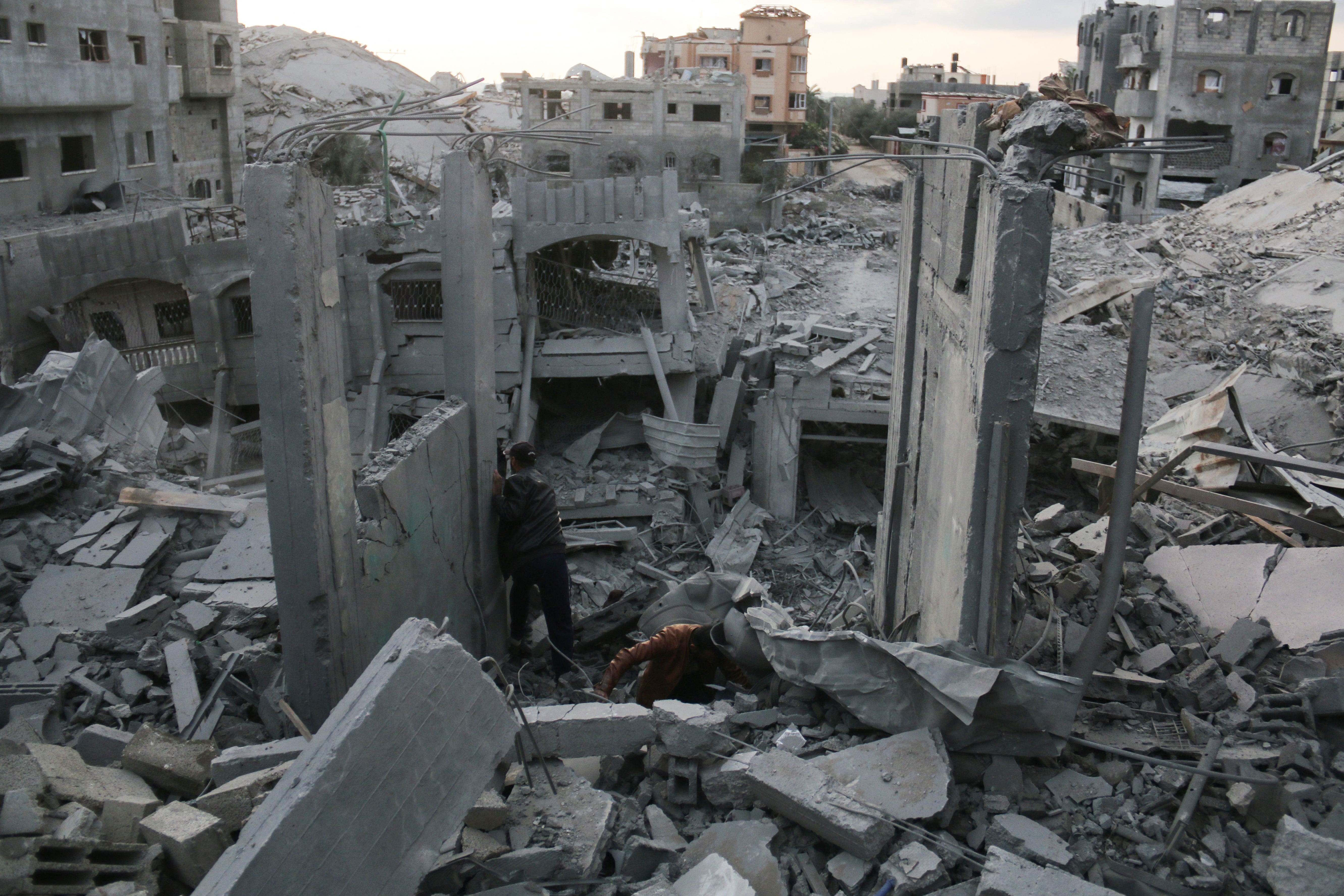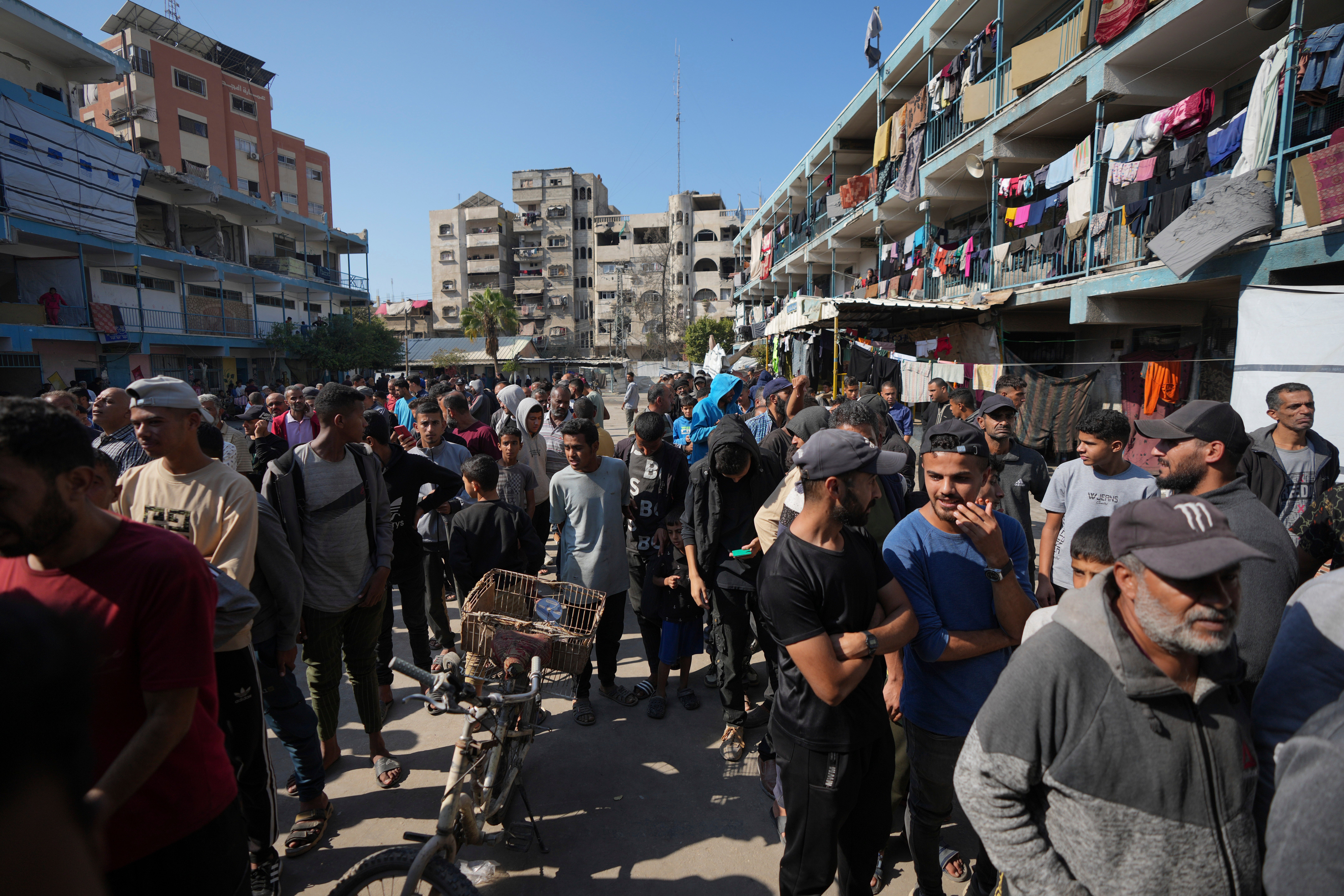Nearly 70 per cent of Gaza war dead are women and children, UN says
Around 80 per cent of UN-verified Palestinian deaths have been in residential buildings or similar housing
Your support helps us to tell the story
From reproductive rights to climate change to Big Tech, The Independent is on the ground when the story is developing. Whether it's investigating the financials of Elon Musk's pro-Trump PAC or producing our latest documentary, 'The A Word', which shines a light on the American women fighting for reproductive rights, we know how important it is to parse out the facts from the messaging.
At such a critical moment in US history, we need reporters on the ground. Your donation allows us to keep sending journalists to speak to both sides of the story.
The Independent is trusted by Americans across the entire political spectrum. And unlike many other quality news outlets, we choose not to lock Americans out of our reporting and analysis with paywalls. We believe quality journalism should be available to everyone, paid for by those who can afford it.
Your support makes all the difference.Women and children account for nearly 70 per cent of all Palestinian deaths in Gaza verified by the UN human rights office (OHCHR), which has accused Israel of failing “to comply with the fundamental principles of humanitarian law”.
The UN rights office has so far verified the deaths of 8,119 Palestinians in Gaza, including 2,036 women and 3,588 children over the first seven months of the war, triggered after Hamas killed around 1,200 people and took a further 250 hostage in its cross-border attack on Israel on 7 October.
The 8,119 victims verified is a lower number than the toll of more than 43,000 provided by Palestinian health authorities for the 13-month war. But the UN breakdown of the victims’ age and gender backs the Palestinian assertion that women and children represent a large portion of those killed in the war.
Around 80 per cent of deaths verified by UN monitors – using three different sources, such as neighbours, family members, and hospital records – occurred in residential buildings or similar housing, with children aged zero to 14 years old accounting for the age group most frequently killed, the UN office said in a new report.
The youngest victim was a one-day-old boy, and the oldest a 97-year-old woman.

In 88 per cent of cases, five or more people were killed in a single attack. This was principally due to Israel’s use of powerful weapons in densely populated areas, although some may be the result of misfired missiles fired by Palestinian militants dropping short, the report said.
The continuation of these attacks, killing evenly across the population, “demonstrates an apparent indifference to the death of civilians and the impact of the means and methods of warfare selected”, it states.
“Our monitoring indicates that this unprecedented level of killing, and injury of civilians is a direct consequence of the failure to comply with fundamental principles of international humanitarian law – namely the principles of distinction, proportionality and precautions in attack,” said UN rights chief Volker Turk.
“Tragically, these documented patterns of violations continue unabated, over one year after the start of the war.”
This finding indicates “a systematic violation of the fundamental principles of international humanitarian law, including distinction and proportionality”, the OHCHR said in a statement accompanying the 32-page report.

Israel has repeatedly said it targets Hamas and takes steps to mitigate risk to civilians by using precise munitions.
Israel’s diplomatic mission to the UN in Geneva said it categorically rejected the report. “Once again, OHCHR fails to accurately reflect the realities on the ground, and disregards the extensive role of Hamas and other terrorist organisations in deliberately causing civilian harm in Gaza,” it said.
“The rules of war, in force now for 160 years, were designed to limit and prevent human suffering in times of armed conflict,” said Mr Turk. “Their wanton disregard has led to the current extremes of human suffering which we continue to see today.
“It seems inconceivable that the parties to the conflict refuse to apply universally accepted and binding norms developed to preserve the very bare minimum of humanity.”
He added: “It is essential that there is due reckoning with respect to the allegations of serious violations of international law through credible and impartial judicial bodies and that, in the meantime, all relevant information and evidence are collected and preserved.”
Additional reporting by Reuters

Join our commenting forum
Join thought-provoking conversations, follow other Independent readers and see their replies
Comments